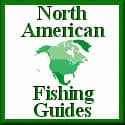Bass on Hook is Supported by our readers. As an Amazon Associate We earn commissions from qualifying purchases. For more informtion read our Amazon Affiliate Disclosure and Affiliate Disclosure Policies.
Boating Safety - A Wake Up Call!
By Dennis Bryant "The Fishing Professor"
Just about everyone who has owned a high performance boat for more than a single season has had an INCIDENT on the water.
An incident is a near miss instead of an accident.
It's a scrape in the side of the hull rather than an explosion of fiberglass parts.
It's a bruise on the knees instead of a trip to the hospital.
It's almost losing control of your boat in a high speed turn rather than running the boat aground.
It's an OOPS! Instead of a deadly boating accident.
It's one of those things that you laugh about after it's over.
Am I right?
Have you had one yet?
Two?
More?
Please forgive the ramblings of an "old man", but an event happened a few days ago that made me acutely aware of the fallibility of us all.
Tragedy On The Water Can Strike At Anytime
I just lost a longtime friend and fishing buddy in a tragic, senseless and totally preventable boating accident.
His life was taken by a person with five years of high-performance boating experience who had just a week before the accident took place, finally completed a boating safety course.
My friend was a freshwater charter captain with more than a quarter of a century of experience behind the helm of a Lake Erie charter boat.
He was a knowledgeable, safe and sober skipper.
He was an acknowledged expert in his field.
He'd also spent the last eight years of his life as a volunteer navigation instructor at the same Coast Guard 'boater's safety courses' that the driver of the other boat had just completed.
The captain had never had a boating accident in all his years on the water.
The large twin engine offshore style boat was running parallel to and overtook the charter boat my friend was operating.
The driver of the faster boat was hit in the eye by an insect while his boat was running at well over 50 MPH.
He wasn't wearing protective eyeglasses at the time.
His 40' boat veered, turned into and ran completely over the starboard side of the slower charter boat before the driver even realized what had happened.
Two people died and four more were seriously injured because of one man's simple loss of common sense judgment.
My friend left behind his wife of thirty-five years, four children and seven grandchildren.
Boating Safety Should Be A Forethought Not An Afterthought
Now I'm about the last person in the world who can claim to be an expert on boating safety.
Therefore, I'm not even going to try to make that claim.
I'm also not one to point fingers.
Back to that old "Woulda, Coulda, Shoulda" thing.
Hindsight is always 20/20!
When you think about it though, there is something seriously wrong out there when it comes to boating safety!
Too many people myself included I'm afraid are taking everyday boating safety far too much for granted.
Not the majority of all the boaters to be sure, but still far too many fail to even take the time to seriously think about what they're doing on the water.
The mind strays to thoughts about exactly where to go as you head out and what to do and what you'll use when you get there.
Rather than the task immediately in front of you ~ keeping aware of where you are, what and who's around you and just plain getting there safely!
Defensive driving courses are available for all sorts of land based vehicles.
At the time of this writing, there are still no standardized mandates for watercraft.
In 1970 you were required to present a "Safe Boating Course" certificate in order to register for a bass tournament on a national circuit.
The certificate was not allowed to be more than 5 years old.
I seriously wonder what percentage of invitational or club tournament anglers have one with their name on it today.
During the last forty five years or so, I've spent an enormous amount of time on the water.
I've spent some time in the 'white knuckle seat' and a lot of time at the helm of a bass boat.
I've also spent a decent amount of time as well in both racing boats and freshwater charter boats.
Because of that I think I know what I'm talking about when it comes to the day-to-day operation of boats.
I've been involved in and witnessed more than my fair share of near-miss incidents on the water over the years.
I know what they are and how they can happen in the blink of an eye.
No one is immune to them.
None of us are that lucky!
It's Simple Really, Speed Kills
I'm sure you realize fully that at 50mph even a bass boat is dangerous.
At over 60mph it becomes extremely hazardous.
At over 70mph it becomes a projectile that actually needs more to be aimed than be steered.
It doesn't have the stab-boards that a racing boat or even a much slower ski boat does to help in the turns.
Do you think that any racing boat driver would wear as little protective equipment as most of us do at over 70 mph?
Stop and think!
They wear anchored safety harnesses, flak jackets, certified full-face helmets, goggles, padded gloves and fully padded leather survival suits, plus their four-point class-1 life jackets.
What do most of us wear when we take off for a day on the water?
I don't know about you but I haven't worn protective racing-gear for fifteen years!
Probably never will again!
However, I do still wear the helmet and goggles on rare occasions.
Not because of the 100mph speeds anymore but because sometimes I just feel the need to wear them.
Age and a strong desire to remain alive a bit longer may have a lot to do with that.
Boating Safety Summary
Please if you've stayed with me to this point, remember these few last items:
Operate your boat as if your life depends on it!
Because it does!
Drive your boat and your tow vehicle safely!
Someone is waiting for you to come home at the end of the day!
Learn and practice the rules of the water (road) for safe boating.
Take a safe boating course.
Listen to what the instructors have to say.
Learn from it and pass the information on to your friends.
The information just may someday save your life or the life of someone you love or care for very much!
GOOD FISHIN'!
Dennis Bryant
The Fishing Professor
Look for other articles written by Dennis Bryant in The Fishin Professor's Pro Staff Angler Profile










